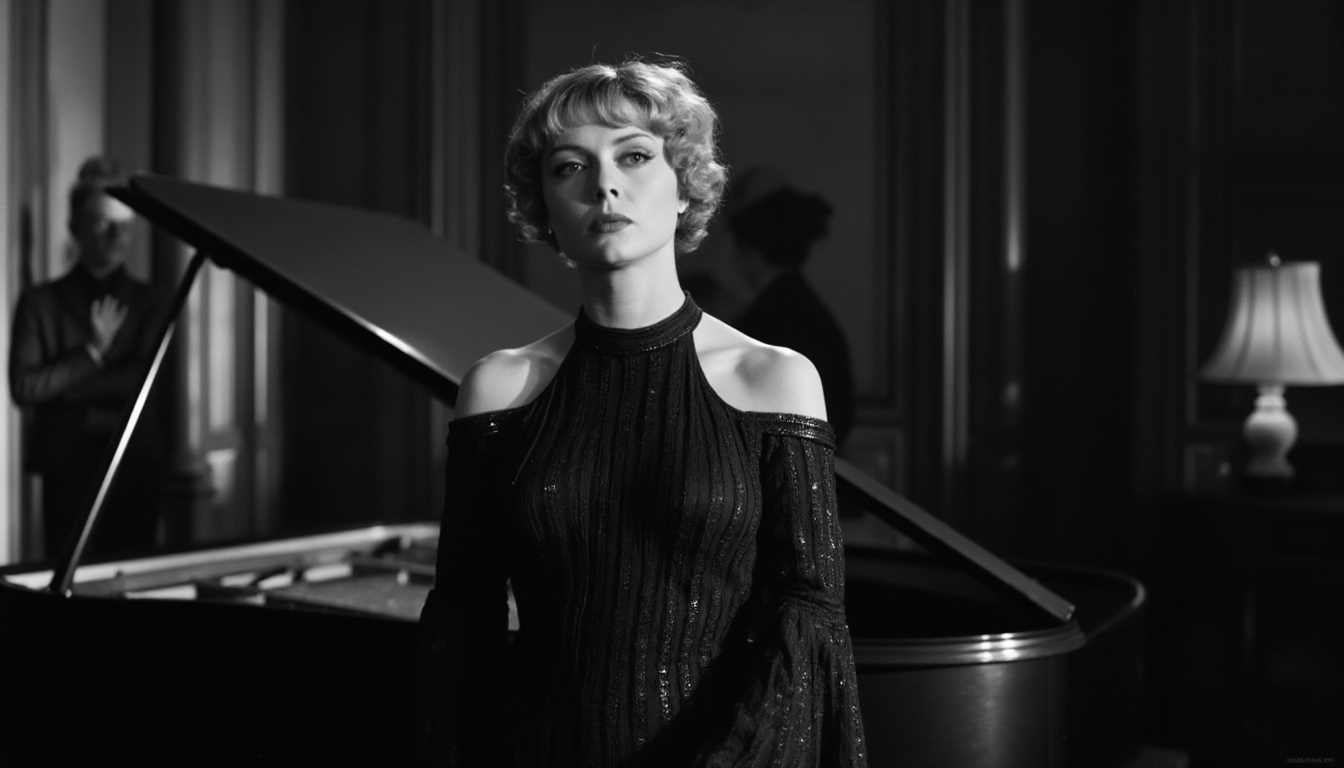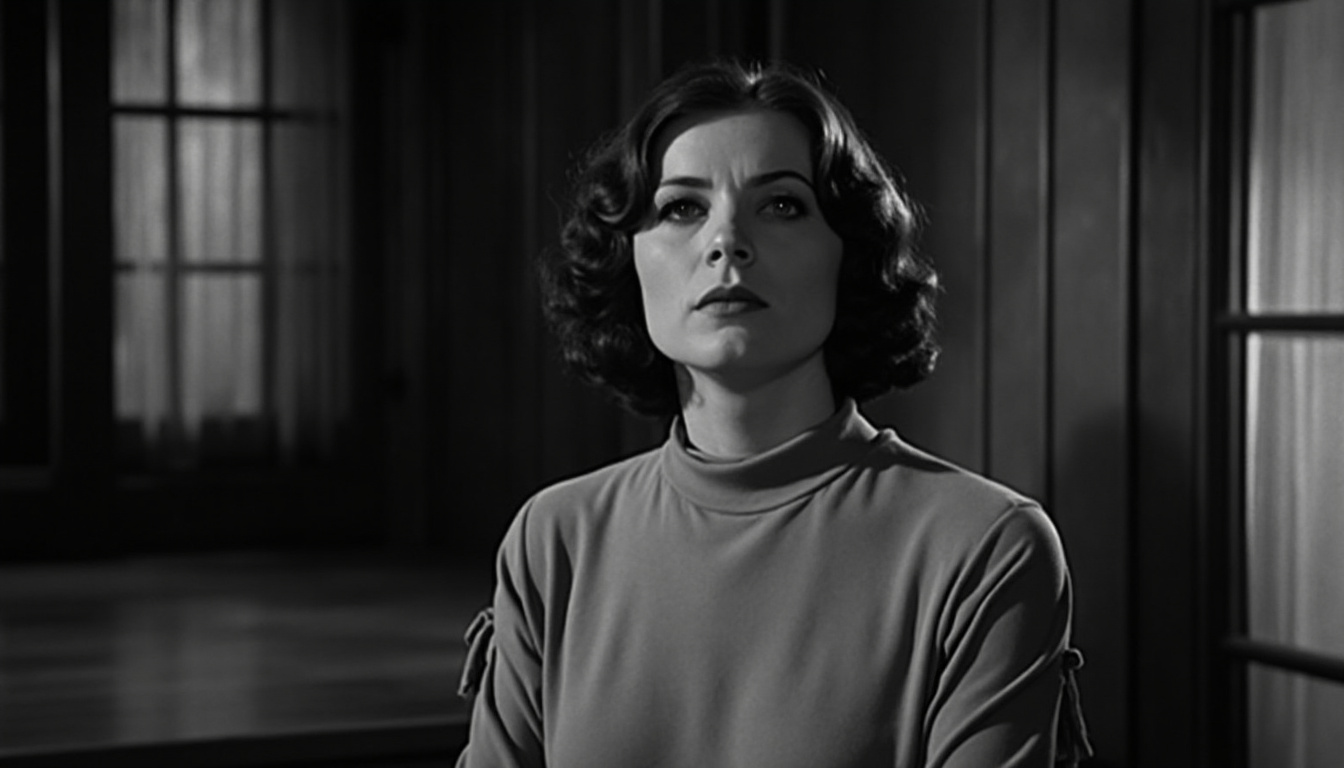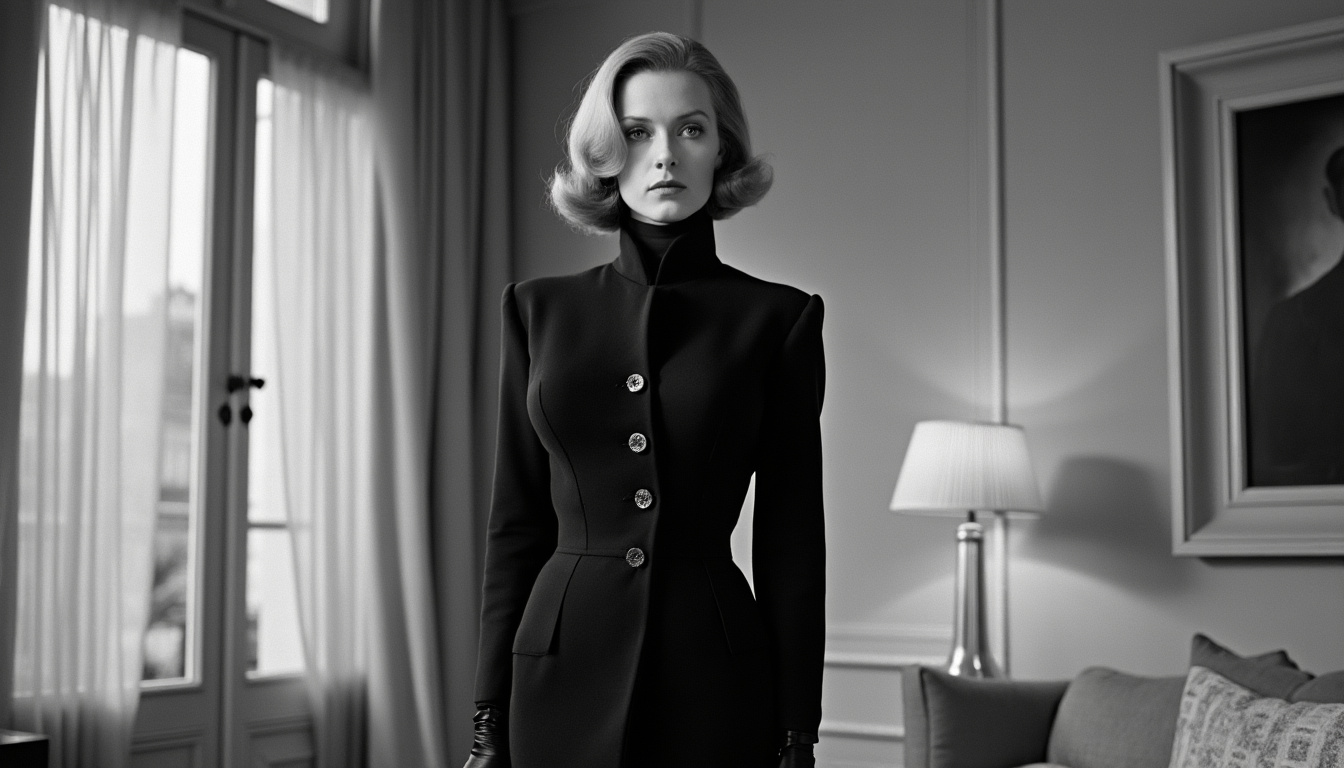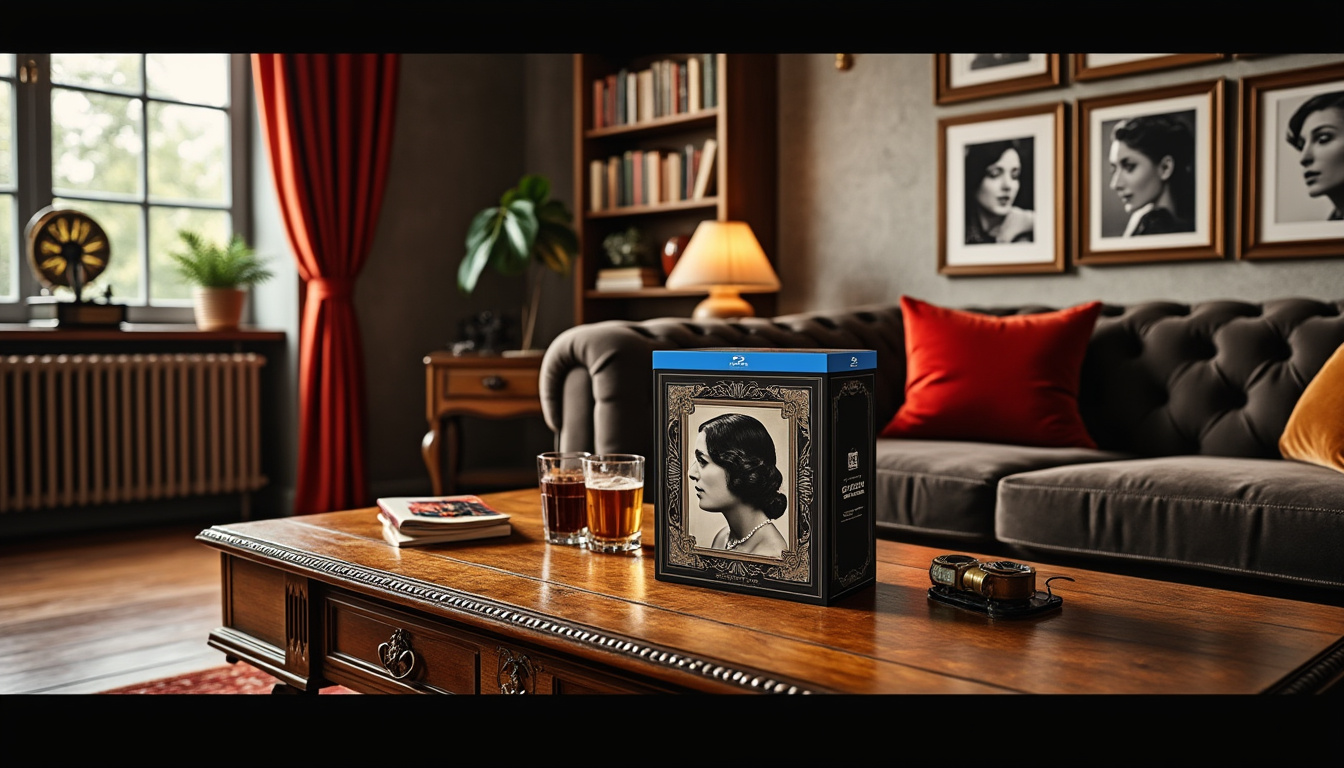The recently released Greta Garbo 4-Film Blu-ray Collection has become an essential item for classic cinema enthusiasts. This compilation features four of Garbo’s most admired performances, spanning from her first sound film, Anna Christie, to the romantic comedy Ninotchka, showcasing the evolution of her iconic career. With the resurgence of interest in classic films, this collection offers a perfect gateway for new fans and a nostalgic journey for longtime admirers. Each film has been lovingly restored, not only affirming Garbo’s legendary status as one of Hollywood’s greatest stars but also allowing contemporary audiences to witness her talent in high-definition clarity.

Rediscovering Garbo: A Brief Overview of Her Cinematic Legacy
Greta Garbo, often celebrated for her enigmatic presence and groundbreaking performances, transcended the boundaries of her era. Born in Sweden, her early roles in silent films showcased her ability to convey profound emotions without dialogue, earning her a dedicated following. After transitioning to talkies, her distinctive voice and unmatched charisma solidified her legacy. The new Blu-ray collection includes the following films, all of which represent different facets of her illustrious career:
- Anna Christie (1930) – The actress’s first sound film that showcased her transition into a new cinematic era.
- Camelie (1936) – A heart-wrenching narrative about love and sacrifice, featuring her acclaimed performance as Marguerite Gautier.
- Ninotchka (1939) – A groundbreaking romantic comedy that highlighted her comedic timing paired with mastery in drama.
- Queen Christina (1933) – A historical drama that captivated audiences with Garbo’s portrayal of a powerful yet vulnerable monarch.
This 4-film collection not only includes the original English versions but also presents the German adaptation of Anna Christie, providing a unique perspective on Garbo’s ability to connect with diverse audiences. The collection’s restoration process allows these timeless narratives to resonate with contemporary viewers while remaining true to the original essence of Garbo’s performances.
The Transformation of Swedish Cinema: Anna Christie and Garbo’s Evolution
Anna Christie marks a pivotal moment in cinema history, not just for Garbo, but for film as a whole. Before this, sound was rarely utilized effectively in films, with many actors failing to transition from the silent film format. Garbo, however, embraced the new medium with a magnetic presence. Branded with the memorable tagline, “Garbo talks!”, this film not only highlighted her vocal delivery but also demonstrated her ability to express deep emotional nuances, earning her an Academy Award nomination for Best Actress.
Garbo’s transition into sound films opened doors not just for her career, but also for countless other actors who followed in her footsteps. The film portrays a complex narrative that pits a woman against her turbulent past as she seeks redemption and love. A look at key themes in Anna Christie reveals:
- The Complexity of Human Emotions: Garbo’s ability to manifest vulnerability while exuding confidence in difficult scenarios captivates audiences.
- Gender Dynamics: The film tackles issues of female empowerment and societal expectations during the early 20th century, making it a groundbreaking work.
- Thematic Depth: The story’s heartache and struggle resonate across generations, showing that timeless storytelling continues to find relevance.
The impact of Anna Christie extended beyond box office success; it created conversations around the portrayal of women in film, and how their voices could drastically alter narratives. When exploring Garbo’s evolution, her performance in Camelie is not to be overlooked.

The Heartbreaking Allure of Camille
Camelie stands as a testament to the profound depth Garbo brought to cinematic performances. Directed by George Cukor, the film revolves around the tragic love story of Marguerite Gautier, a courtesan battling her inner demons and external expectations. The narrative unfolds as Armand Duval falls deeply in love with Marguerite, unaware of the societal barriers their relationship faces. This exploration of love, sacrifice, and societal constraints deeply resonates with contemporary audiences. Critically acclaimed, the film garnered Garbo her third Academy Award nomination, solidifying her position as a leading actress in Hollywood.
Some pivotal aspects that make Camelie exceptional include:
- Visual Storytelling: The cinematography elevates Garbo’s performance, enhancing the emotional weight of the scenes.
- Character Complexity: Marguerite Gautier is neither a simple heroine nor a villain; she encapsulates the complexities of human desires and societal judgments.
- Cultural Impact: The film sparked discussions on the nature of love and sacrifice, continuing to influence modern romantic dramas.
Garbo’s unparalleled ability to infuse software and complexity into her characters has left a lasting imprint on the industry. Viewers often reflect on her performances through the lens of contemporary culture, recognizing the relevance of the challenges faced by her characters in today’s society.
Ninotchka: The Iconic Romantic Comedy That Redefined Genre Boundaries
Moving into the realm of comedy, Ninotchka showcases Garbo’s versatility as an actress. Directed by Ernst Lubitsch, this film illustrates her ability to transcend genres and embrace humor without losing the core of her dramatic appeal. The story follows a stern Soviet envoy, Ninotchka, who travels to Paris on a mission but finds herself entangled in a romantic pursuit with a charming Frenchman. It was groundbreaking – shifting Garbo’s image from a tragedy-centric actress to one who can navigate lighthearted romance.
The film’s clever script and sharp dialogues offer a delightful commentary on love, politics, and cultural clashes. Key highlight features include:
- Witty Dialogues: A sophisticated script where Garbo shines, showcasing her impeccable timing.
- Cultural Critique: The film cleverly satirizes political ideologies, making it a layered cinematic experience.
- Transformative Performance: Garbo’s portrayal of a character caught between duty and desire showcases her range as an actress.
As one of the last films released before World War II shifted global dynamics, Ninotchka embodies a snapshot of its time, blending comedy and romance with political undertones. It allows modern audiences to appreciate Garbo’s comedic timing while acknowledging the poignant themes interwoven into the narrative.

A Royal Performance: Queen Christina
Queen Christina, another film in this collection, encapsulates Garbo’s ability to portray strong yet deeply conflicted characters. The film takes inspiration from the historical figure of Christina, Queen of Sweden, known for her unique reign and unconventional lifestyle. Directed by Rouben Mamoulian, the film intertwines themes of power, love, and identity, making it a groundbreaking narrative of its time. Garbo’s portrayal of the queen questions societal norms while exploring personal desires.
Pondering the overarching themes present in Queen Christina, one notes:
- Gender Roles: The film significantly explores the challenges faced by women in power, providing insight into Christina’s struggles.
- Identity Crisis: Garbo embodies a restless monarch grappling between duty and freedom, a reflection of her own quest for self-discovery.
- Cinematic Techniques: The visual approach employed enhances the emotional depth, accentuating Garbo’s compelling performance.
This film not only marks Garbo’s fourth collaboration with actor John Gilbert but also lays bare her versatility as she transitions between roles that ridicule and celebrate femininity. Queen Christina, much like Garbo herself, stands as a symbol of defiance against societal expectations.
The Timelessness of Garbo’s Legacy in Cinema
The Greta Garbo 4-Film Collection serves as a remarkable celebration of an actress who redefined cinematic standards and elevated the art of performance. The restoration efforts by Warner Archive have brought these classic films to life, allowing audiences to fall in love with Garbo’s performances all over again. As viewers experience the emotional arcs and complex characters she portrayed, there is an undeniable realization of her impactful legacy on contemporary cinema.
In a world where film often prioritizes style over substance, Garbo’s performances remain an enduring example of how actors can convey the intricacies of human emotions. Through the films collected in this Blu-ray set, modern audiences are invited to appreciate not just the entertainment value of classic cinema, but the profound themes interwoven into these narratives.
- Rediscovery of Classic Actors: Warner Bros. continues to honor cinema history through collections like this, linking the past to present.
- Expanded Options: With the inclusion of both English and German versions of Anna Christie, dedicated fans receive added value in exploring Garbo’s artistry across languages.
- Impact on Modern Filmmaking: Garbo’s techniques and styles resonate within contemporary narratives and performances, inspiring current generations of filmmakers and actors.
As audiences savor the rich narratives captured in this collection, the influence of Greta Garbo is sure to endure, reminding everyone that some legends never fade—; they only become more fascinating with age.


